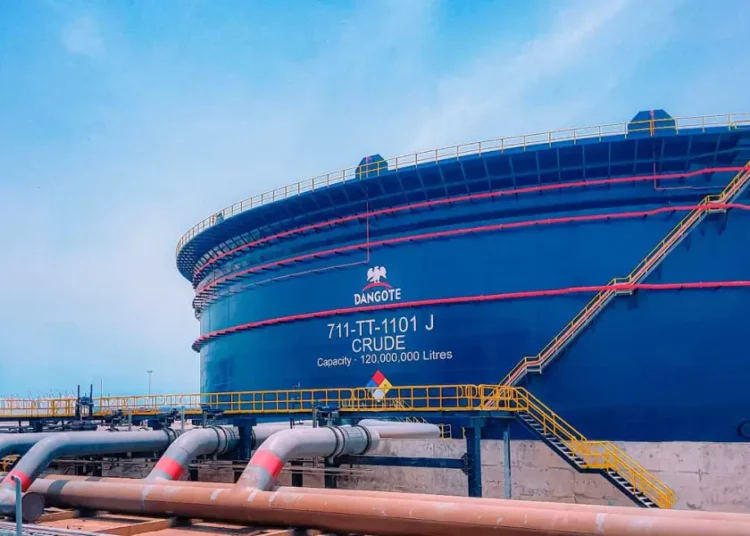The House of Representatives Committee on Petroleum Resources (Downstream) has declared the Dangote Refinery and other modular refineries across Nigeria as assets of strategic national interest, urging all stakeholders to unite in protecting and promoting them as catalysts for national growth.
Committee chairman, Hon. Ikenga Imo Ugochinyere, made the declaration on Monday in Abuja, emphasising that the operations of indigenous refineries have placed Nigeria on a new path of industrial expansion and energy independence.
“The Dangote Refinery and these other modular refineries are assets of strategic national interest. With their giant strides, Nigeria proudly boasts of expanding refining capacity and industrial growth across the energy value chain today,” Ugochinyere said.
Highlighting major developments in the downstream sector, the lawmaker noted that the 650,000 barrels-per-day Dangote Refinery stands as Africa’s largest, redefining Nigeria’s refining landscape and boosting regional energy stability.
He also pointed to Indorama Petrochemicals, which has expanded its urea and fertilizer capacity to 2.8 million metric tonnes per annum, as a key driver of agricultural advancement and gas utilisation.
Similarly, he cited the Waltersmith Modular Refinery in Imo State, which is expanding from 5,000 to 50,000 barrels per day, alongside OPAC Refinery in Delta State and other emerging projects in Edo and Rivers States, as shining examples of indigenous innovation and enterprise.
“These developments, supported by over $13 billion in new upstream investments in 2024 alone, are clear signals of renewed investor confidence in Nigeria’s energy sector,” he added.
Ugochinyere commended the Nigerian Upstream Petroleum Regulatory Commission (NUPRC) for enforcing the Domestic Crude Oil Supply Obligation (DCSO), which mandates that local refineries receive guaranteed crude feedstock before any export allocations.
“This bold move ensures that local refineries, including modular and conventional operators, have guaranteed access to crude feedstock before export allocations are made,” he said.
“It represents a decisive shift from policy rhetoric to practical support for local value addition, job creation, and energy independence.”
He said the new policy marks a turning point in Nigeria’s pursuit of energy self-sufficiency, ensuring that “every barrel of Nigerian crude first serves the Nigerian refinery.”
“The House Committee on Downstream Petroleum Resources fully supports this policy, which aligns with our legislative vision to prioritize domestic refining capacity, enhance supply security, and strengthen the naira through reduced import dependence,” Ugochinyere affirmed.
The committee chairman also announced plans to pursue new legislative measures aimed at deepening local refining capacity and removing regulatory bottlene that’s fine
According to him, the House Committee will: grant local refineries first right of refusal on crude allocations, streamline regulations to eliminate unnecessary delays, develope a “Refinery Protection and Promotion Bill” to classify refineries as strategic national assets, ensuring they receive priority protection and support and introduce measures that guarantee unhindered access to crude feedstock and prevent disruptions to refinery operations nationwide.
“These steps are vital to sustaining investor confidence, creating jobs, and strengthening our energy independence,” Ugochinyere noted.
Addressing recent labour tensions involving the Dangote Refinery and sector unions, Ugochinyere said while industrial disagreements are not unusual, they must be resolved through dialogue rather than disruption.
“No reform can succeed without industrial harmony,” he warned.
“We therefore call upon both labour unions and industry operators to always pursue dialogue over disruptions at all times. The House Committee stands ready to facilitate peace, fairness, and mutual respect in all industrial engagements.”
He added that the shared goal of all stakeholders must be to protect jobs, sustain businesses, and promote Nigeria’s economic sovereignty.
“To all operators in the downstream sector, let me emphasize that responsibility stands equal to profitability,” the lawmaker said.
Ugochinyere’s remarks came amid growing optimism within Nigeria’s oil and gas industry, as renewed local refining efforts and policy reforms begin to reshape the nation’s energy architecture.





